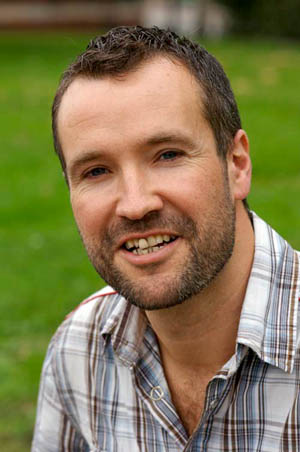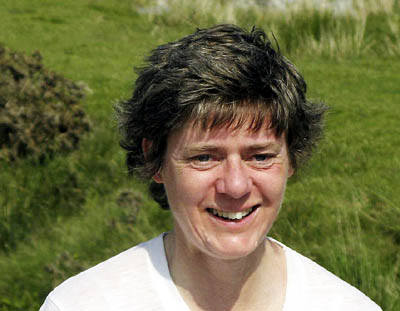The Ramblers should spend less time Twittering and more effort on fighting for countryside access.
That’s the view of one of the organisation’s vice-presidents in a riposte to a story this week quoting chief executive Tom Franklin’s view that the charity needs to pursue young couch potatoes who won’t walk. The counter view came in a letter to the Guardian from Chris Hall, a long-time activist in the Ramblers.
Northern editor Martin Wainwright’s piece in the newspaper five days ago reflected the new direction the organisation has taken since its financial crisis last year. Urban walking has become one of its top targets and many traditionalists see the Ramblers as having lost sight of its true purpose: fighting for the right to walk on Britain’s fields and fells.
Wainwright said: “The Ramblers plan to target young people with ‘we’re not fuddy-duddy’ messages and walks on themes such as London film shoot sites, or circuits from Glastonbury and other festival grounds.”
Franklin is then quoted as saying: “Our strength grew out of local groups, many going back into the 19th century, combining to make change nationally. Now we are going local again.”
He pointed out that more than 900 people have joined a new branch for Londoners in their 20s and below, and every new member will get automatic computer links to their nearest group and its events. Twitter, Facebook and other social sites have been mobilised.
This clearly rankles with Chris Hall. In his letter to the newspaper, he says: “It is all very well to be chasing the young walkers – with, of course, a trendy genuflection to Facebook and Twitter – but if Mr Franklin had a realistic sense of the needs of ramblers of all ages he would launch a public and aggressive campaign to free the paths and remove the fences on open country.
“We campaigned thus for nearly 70 years and the membership of the association rose year by year. Since 2003 our numbers have fallen from more than 140,000 to fewer than 123,000 because we have ceased to be on the frontline in getting the paths and countryside open.”

Hall disputes Franklin’s claim that ‘We’ve achieved a world-class network of paths and open access in the country’ and points out the Ramblers’ own figures that say more than 30 per cent of paths in England Wales are still reckoned to be difficult or impossible to use.
For an example of world-class status for open access, Hall says, we need look no further than Scotland, with its across-the-board right to roam. Whereas in England, he says, ‘Hundreds of square miles of uncultivated land, especially in the South and Midlands, remain shut to the public by the whims of landowners’.
Wainwright’s story also quotes former Ramblers’ chair Kate Ashbrook, no stranger to grough readers, whose heart perhaps lies in more traditional association activities. “Ramblers’ trustee Kate Ashbrook, who is also general secretary of the allied Open Spaces Society, is leading the anniversary year’s first charge, a Put Yourselves on the Map campaign aimed at dilatory local councils,” the Guardian’s journalist wrote.
“She said: ‘It’s scandalous that councils were ordered in 1949 to publish definitive rights-of-way maps for their areas, but many still have not done so. Justice delayed is justice denied. We need walkers in places such as Cardiff, Ipswich, Norwich, Plymouth and all the London boroughs to help us to get this put right’.”
As the Ramblers approach the 75th anniversary of their founding, the bubbling controversies are still there just below the surface. Scottish and Welsh members last year called for independence from the London-based organisation as they saw their staff numbers cut to just two in each of the nations as part of a wider cost-saving exercise led by Franklin.
Wainwright is also taken to task for his claim that the Ramblers organised the famous Kinder Scout mass trespass in 1932, which was instrumental in the movement that saw the setting up of national parks and, eventually led to the right-to-roam legislation enjoyed by walkers today.
It was, as Neil Redfern of Manchester Metropolitan University rightly points out, an offshoot of the Communist Party of Great Britain that led the protest. Benny Rothman and his British Workers’ Sports Federation members were, at the time eschewed by the Ramblers, who viewed their hot-headed actions as counter-productive. The Ramblers preferred a civil dialogue over tea and biscuits with the Duke of Devonshire and other landowners. Benny and four others enjoyed a spell of porridge in Leicester jail as his reward.
Some might see historic echoes in the present tensions.



The Piglit
28 January 2010When they stop tucking their trousers in their socks and wearing brightly coloured bobble hats all year round I'll join them